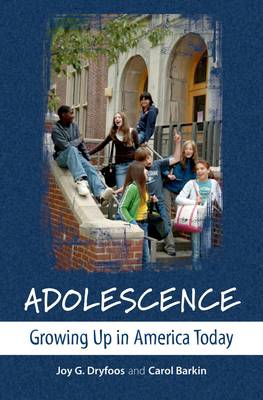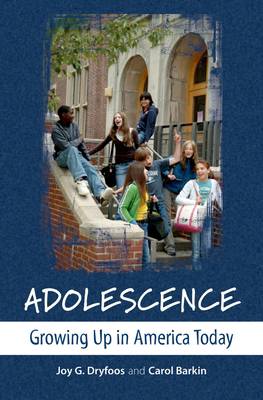
En raison d'une grêve chez bpost, votre commande pourrait être retardée. Vous avez besoin d’un livre rapidement ? Nos magasins vous accueillent à bras ouverts !
- Retrait gratuit dans votre magasin Club
- 7.000.000 titres dans notre catalogue
- Payer en toute sécurité
- Toujours un magasin près de chez vous
En raison de la grêve chez bpost, votre commande pourrait être retardée. Vous avez besoin d’un livre rapidement ? Nos magasins vous accueillent à bras ouverts !
- Retrait gratuit dans votre magasin Club
- 7.000.0000 titres dans notre catalogue
- Payer en toute sécurité
- Toujours un magasin près de chez vous
107,95 €
+ 215 points
Description
Of the 33 million adolescents in the United States, almost 10 million are at risk of failing to become responsible adults. They attend schools that do not serve their needs, lack the support of caring adults, and, as a result, are alienated from mainstream society. African-American and Hispanic children, increasingly segregated in disadvantaged neighborhoods, are particularly vulnerable. In Adolescence: Growing Up in America Today, a follow-up to Joy Dryfoos's landmark volume, Adolescents at Risk (OUP, 1991), Joy Dryfoos and Carol Barkin take a close look at the lives of young people, identify some of their problems, and present solutions based on state-of-the-art prevention and treatment strategies. They examine important issues in adolescents' lives--sex, violence, drugs, health, mental health, and education. Reviewing successful prevention programs and policy studies, Dryfoos and Barkin demonstrate that we know what to do to prevent high-risk behaviors: young people need to establish relationships with adults; parents need to be involved in their children's lives; and programs need to be comprehensive, sensitive to cultural differences, and staffed by highly trained personnel. Dryfoos and Barkin argue that turning our backs on adolescents will lead to disturbing consequences: the achievement gap will grow, outcomes will worsen, school systems will struggle with the growing disparities, and we as a nation will fall behind the rest of the world in our capacity to educate our youth. If, however, we decide that we want a better quality of life for our children, we will insure that every young person has access to an excellent education. Schools, youth workers, and parents cannot alone provide a better quality of life for our adolescents, but each must play a major role, and all must work together. Providing a roadmap for the development and implementation of sound policies for American teenagers in the twenty-first century, this volume is a must-read for anyone interested in the future of our nation's youth.
Spécifications
Parties prenantes
- Auteur(s) :
- Editeur:
Contenu
- Nombre de pages :
- 272
- Langue:
- Anglais
Caractéristiques
- EAN:
- 9780195179613
- Date de parution :
- 03-08-06
- Format:
- Livre relié
- Format numérique:
- Genaaid
- Dimensions :
- 162 mm x 236 mm
- Poids :
- 512 g

Les avis
Nous publions uniquement les avis qui respectent les conditions requises. Consultez nos conditions pour les avis.






